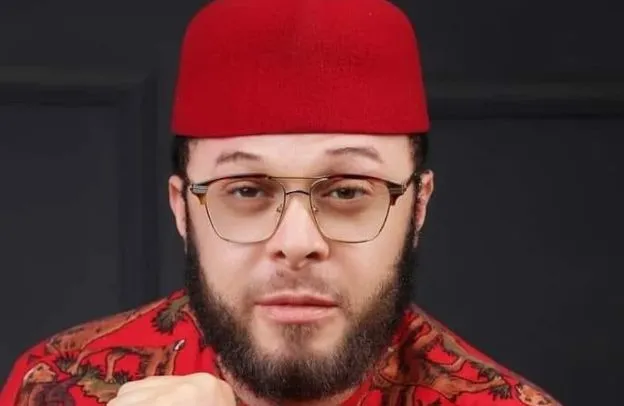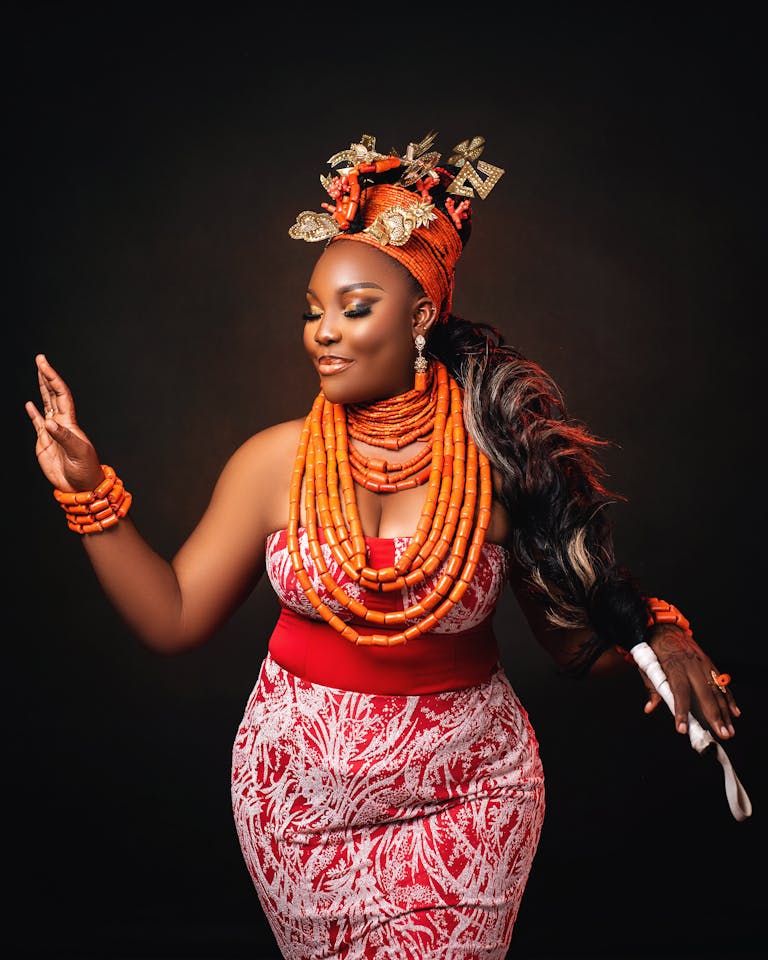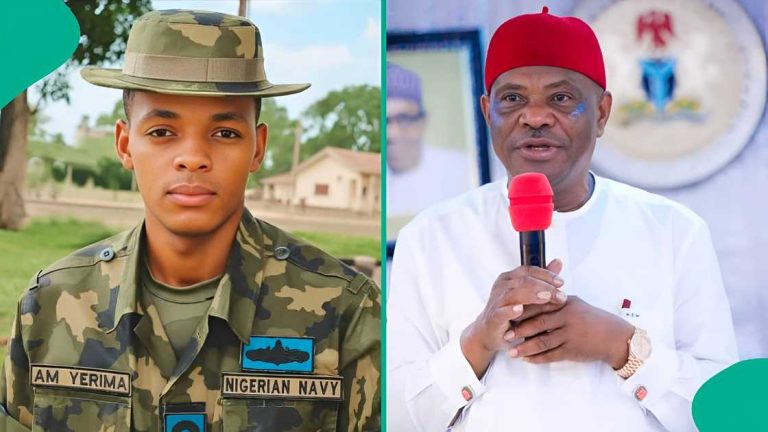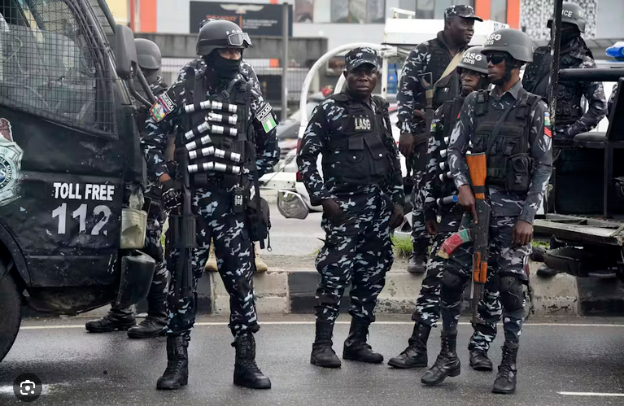U.S. President Threatens Military Action Against Nigeria: Understanding the Modern-Day Scramble for Africa and Its Implications

The headlines flash across our screens, stark and unsettling: A sitting U.S. President threatens “fast, vicious, and sweet” military action against Nigeria, Africa’s most populous nation. He instructs a “Department of War” to prepare for intervention, justifying it as a holy crusade to save Christians. Almost immediately, a rival superpower, China, steps forward, warning against interference in Nigeria’s “internal affairs” and positioning itself as a “comprehensive strategic partner.”
Learn How to Leverage Your Story through our Story To Asset Framework.
This is a continuation of the series: Trump on Military Intervention in Nigeria – what really is going on and what you need to know to make senses of the situation.
For many, this may seem like just another geopolitical flare-up in a “troubled” part of the world.
But for us, the children of the global African diaspora, this is not just news. It is a memory. It is the echo of a history we carry in our bones. We have seen this play before. We know the script by heart.
This is the language of empire, updated for the 21st century. The situation unfolding around Nigeria is not a new crisis; it is the continuation of a 500-year-old struggle for Africa’s soul, sovereignty, and resources. What we are witnessing is a modern-day scramble for Africa, with new players using the same old justifications.
See also Beyond ‘Guns-a-Blazing’: Reclaiming the Narrative on Nigeria for Diaspora Impact
As a community of entrepreneurs, leaders, and connectors, we cannot afford to be passive spectators. We must analyze this situation with the clear eyes of our ancestors, deconstruct the narratives being fed to us, and understand our own role in ensuring the total freedom of our homeland.
The “Savior” Narrative: A Colonial Playbook
Let’s first deconstruct the U.S. position. The language is tragically familiar.
The threat of “guns-a-blazing” intervention to “wipe out” terrorists in order to save “CHERISHED Christians” is a direct descendant of the 19th-century colonial mandate. It is the “White Man’s Burden” repackaged.
- Then: European powers carved up Africa at the Berlin Conference of 1884, claiming a moral duty to bring “Civilization, Commerce, and Christianity” to a “dark continent.” This was the rhetorical cover for a brutal, extractive enterprise that plundered wealth and shattered ancient societies.
- Now: The justification is “human rights” and “religious freedom.” The language has shifted from “civilizing savages” to “saving Christians,” but the underlying premise is identical: that an African nation is incapable of solving its own problems and requires external, armed “saviors.”
The label of a “disgraced country” is a deliberate act of dehumanization. It seeks to strip Nigeria of its legitimacy as a sovereign state, making it a “failed” entity that is open to foreign intervention. This is the same logic that justified the invasions of Iraq and Libya, fracturing nations under the guise of “liberation,” leaving chaos and opening the door for resource grabs.
See also Don’t Waste Your Energy: To move Mountains Tomorrow, Start by Lifting Stones Today.
The internal challenges Nigeria faces, particularly the complex conflicts in the Middle Belt and the insurgency of Boko Haram, are real.
But these conflicts are deeply rooted in legacies of colonialism, from the arbitrary borders drawn by Lord Lugard that fused disparate peoples, to the post-colonial economic inequalities and climate change that fuel resource competition.
A foreign military “solution” will not heal these deep-seated wounds. It will only pour gasoline on a fire, rip apart the delicate social fabric of West Africa, and create a power vacuum for the very terrorists it claims to fight. The goal is not stability. The goal is access, control, and strategic positioning on the continent.
The “Partner” Narrative: A Different Kind of Debt
In steps China, playing the foil. Beijing’s response is strategically brilliant. It uses the very language that African leaders, weary of Western lecturing, long to hear.
- “Firmly opposes… interference in other countries’ internal affairs.”
- “Supports the Nigerian government as it… leads its people on the development path suited to its national conditions.”
This is the language of the Bandung Conference of 1955, where Asian and African nations gathered to forge a “Non-Aligned Movement” independent of both Western and Soviet imperialism.
China presents itself not as a master, but as a partner. It offers roads, bridges, railways, and telecoms infrastructure without the strings of “democracy promotion” or “human rights” lectures that come with Western aid.
This is a seductive offer. But we must be just as critical of this narrative as we are of the American one.
China’s model is not military; it is economic. It is a transactional, “resource-for-infrastructure” model. This, too, has a history. It is a modern form of economic colonialism that can create dependency, not sovereignty.
You might also like A ‘Vicious, Sweet’ Intervention? Trump’s Nigeria Threat and the New Scramble for Africa
When African nations cannot pay back the loans for these massive projects, they are forced to make concessions. We see ports, mineral rights, and critical infrastructure signed over in 50- or 99-year leases. This isn’t “partnership”; it is a new form of indenture. It is “debt-trap diplomacy,” and it is just as dangerous as gunboat diplomacy.
China’s claim of non-interference is also a double-edged sword. While it sounds like respect for sovereignty, it often means turning a blind eye to corruption and human rights abuses, propping up regimes that do not serve their people, so long as the flow of resources (oil from Nigeria, cobalt from the Congo) continues uninterrupted.
See also Address On Repealing Oil and Gas Subsidies
The choice presented to Nigeria, and to all of Africa is a false one: a paternalistic, interventionist West or a transactional, extractive East. Both see Africa as a “Great Game” chessboard, and Nigeria as a prize.
The Real Prize: Why Nigeria?
Why this focus on Nigeria? Because as Nigeria goes, so goes Africa.
It is the continent’s largest economy. It is its most populous nation, a vibrant, complex powerhouse of over 230 million people. It is the cultural engine of the continent, from Nollywood to Afrobeats. It is a lynchpin for the entire West African region.
To control Nigeria, militarily, as the U.S. threatens, or economically, as China attempts is to gain a foothold over the entire continent. This is why we, as the diaspora, must understand that this is not a distant problem. The “disgracing” of Nigeria is a threat to the dignity and potential of every person of African descent.
Our Response: From Spectators to Stakeholders
We are not just about recording history; it’s about shaping the future. The total freedom of Africa will not be granted by Washington or Beijing. It will be built by Africans—on the continent and in the diaspora.
This is where our analysis must turn to action. For the coaches, consultants, entrepreneurs, and leaders in our diaspora community, here is our mandate.
1. Build Our Own Economic Bridges
The most powerful antidote to neo-colonialism is economic independence. We must move beyond simply sending remittances and become active investors and partners.
- For Business Owners: Instead of waiting for Western or Chinese firms, let’s create our own partnerships. Look to the tech hubs in Lagos and Accra. Partner with African founders. Your expertise in marketing, systems, or capital-raising is invaluable. We must build a transatlantic “brain gain” and “capital-sharing” ecosystem that is by us and for us.
- For Coaches & Consultants: Your wisdom is a resource. Create masterminds, offer training, and build platforms that upskill and empower African entrepreneurs. The goal is to build human infrastructure—leadership, systems, and institutional knowledge—that is more durable than any railway.
2. Seize and Shape the Narrative
We are in an information war. The U.S. narrative is “saving victims.” The Chinese narrative is “respectful partnership.” Both are self-serving.
We must use our platforms, our social media, our blogs, our podcasts, our boardrooms, to tell the true story. This is the story of African agency, innovation, and complexity.
- Challenge the Simplifications: When you hear “Christian persecution,” counter it with the complex realities of resource conflict, climate change, and political representation.
- Amplify African Voices: Use your platform to pass the mic to Nigerian analysts, journalists, and leaders. Challenge the racist premise that we need outsiders to “explain” Africa.
- Reframe the Story: This is not a story about “aid.” It is a story about investment and return. Africa is not a “charity case”; it is the world’s most valuable emerging market.
3. Mobilize Our Political Power
We are not just a cultural or economic force; we are a political one. As citizens and residents in the United States, the UK, Canada, and Europe, we have a unique power.
- Lobby Our “Home” Governments: We must organize to lobby our own governments. Demand that foreign policy toward Africa be based on respect, trade, and partnership—not “aid,” paternalism, or military intervention.
- Support Pan-African Institutions: True freedom requires strong, independent African institutions. We must support the African Union’s “Sixth Region” initiative, which recognizes the diaspora as a formal part of the continent’s future. We need our own think tanks, our own advocacy groups, and our own investment funds that are accountable only to our global community.
The Only Choice is Our Own
The script being played out in Nigeria is an old one. It is designed to force African nations to choose a “master” the old one or the new one.
See also Grande Isle Briefing on the Gulf Oil Spill Disaster
Our role, as the children of the diaspora, is to reject this false choice. We are the descendants of those who survived the Middle Passage, who broke the chains of chattel slavery, and who fought for independence. We carry a legacy of resilience and a mandate for liberation.
The goal is not a “better” or “gentler” partner. The goal is no masters at all. The goal is a truly free and sovereign Africa, powered by its own people, on its own terms. This is the only analysis that matters, and the only future we will accept.





